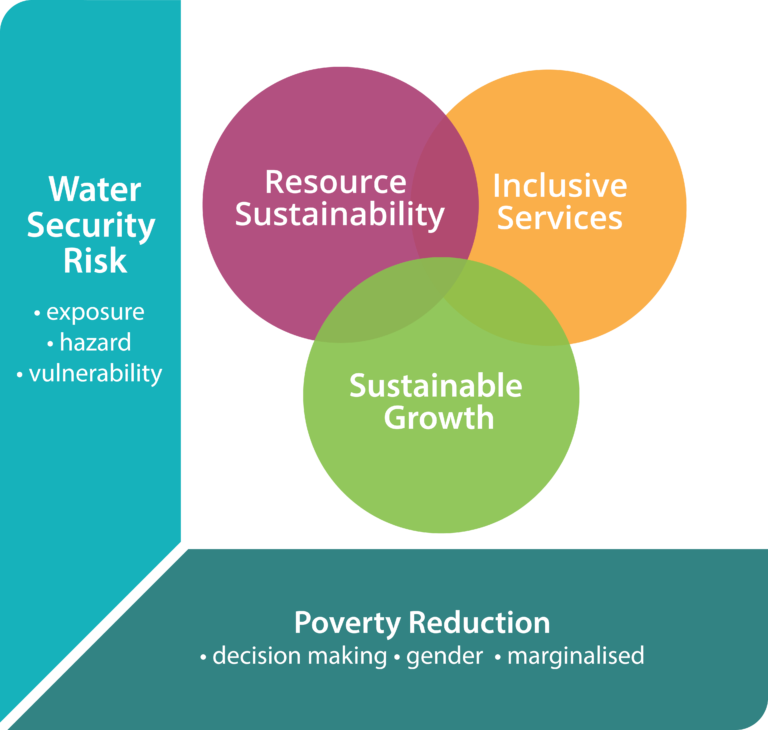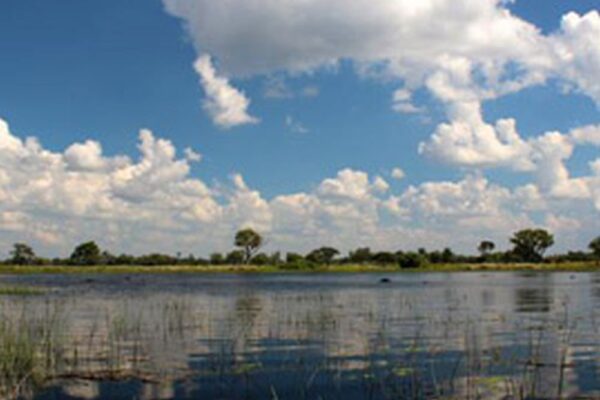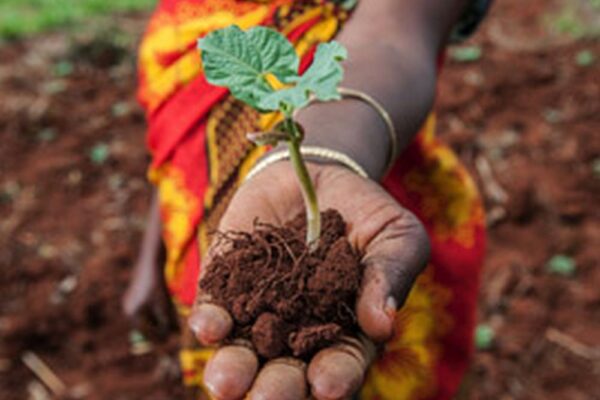
Improving water security for the poor
A risk-based framework
The conceptual framework for the REACH research programme addressed the interactions between water security risks and poverty reduction across three intersecting dimensions: resource sustainability, inclusive services and sustainable growth.

Achieving water security for the poor requires decision making across a wide range of choices, each with different outcomes.
Adopting a risk-based framework was useful because it allowed us to investigate the likelihood and consequences of harm, and enabled us to study the trade-offs and outcomes of different decisions. We were interested in outcomes that influence water system sustainability, economic growth, or poverty reduction.
Water security risks are determined by the relationship between:
- hazard – the issue or event with the potential to cause harm;
- exposure – the people, assets and livelihoods that could experience harm or loss due to the hazard;
- vulnerability – sensitivity or predisposition to experience harm, based on the capacity to anticipate, cope with and recover from harmful events.
The poor are often exposed to multiple and severe hazards, and their poverty means they are highly vulnerable with few resources to be able to cope and recover from water-related hazards.

Resource Sustainability
Resource sustainability considers how to manage surface water and groundwater sustainability for the competing needs of people, industry, agriculture and the environment. Making decisions is challenging when there is high uncertainty about the future of water resources, and increasing climate variability and extremes.

Inclusive Services
Inclusive services address the need to provide reliable, safe, affordable and physically-accessible water services for everyone. Improvements in policy, regulation and delivery are needed to target the poorest people who are most in need and difficult to reach.

Sustainable Growth
Sustainable growth aims to make the benefits of growth inclusive for the poor whilst avoiding damage to the resource base through pollution or over-use of water. Where growth is sustainable it offers pathways out of poverty, whether in agriculture, enterprise or the informal sector.
